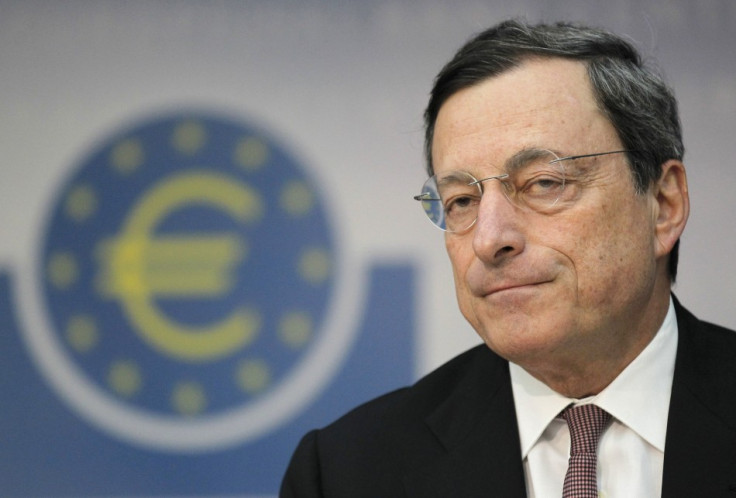ECB Lowers Growth Forecast But Has No Plans To Act on Italian Market Turmoil

The European Central Bank lowered its growth forecast for the Eurozone this year as it left its key interest rate unchanged at a record low and said it had no power to intervene independently into Italy's financial markets.
The ECB now sees the Eurozone economy contracting between -0.9 percent and -0.1 percent this year, President Mario Draghi told reporters during his monthly press briefing in Frankfurt Thursday, a slight downgrade from its previous range of -0.9 percent to +0.3 percent. Draghi also said that he wasn't concerned about financial market contagion as a result of Italy's political deadlock.
"Markets after some excitement immediately after the elections have now reverted back, more or less, to what they were before (the February elections)," Draghi said. "Markets have been far less impressed by this than politicians or the media. Contagion to other countries has been muted, contrary to what might have happened about a year and a half ago and that's also a positive sign."
The rules of the ECB's sovereign bond backstop, the Outright Monetary Transactions or OMT programme, "are what they are", said Draghi, indicating that the ECB would not be able to purchase Italian debt without a formal request for financial support by the government to both the European Union and the International Monetary Fund. "The ball is in the government's court," he added.
Benchmark 10 year Italian government bond yields have fallen from around 4.9 percent in the immediate aftermath of the 25 February vote to around 4.6 percent, according to Reuters data. The average over the last three months has been around 4.43 percent.
When asked if he felt the current low-interest rates and extraordinary supports from central banks around the world - including his own - were creating the conditions for a stock market bubble, Draghi was cautious.
"It is very hard to say if stock prices are right or wrong," he said. "But much of (the recent rally) the Euro area has to do with confidence. In the US it might have to do with the increased prospects of a recovery. But it's too difficult a question to answer in a clear and unambiguous way."
The ECB expects inflation to remain in a narrow 1.2 percent to 2 percent range for this year before easing in 2014 to between 0.6 percent and 2 percent, largely in-line with previous forecasts.
When asked if, as this stage, he was more concerned with future inflation or deflation, Draghi replied that investors didn't appear to be buying protection against either.
"If we mean by deflation a generalised fall in prices that is self-feeding, we have not seen that," he said. "We've seen lower prices for certain assets in certain countries but that is part of the overall re-balancing of the Euro area and should be taken as a good sign."
© Copyright IBTimes 2025. All rights reserved.





















